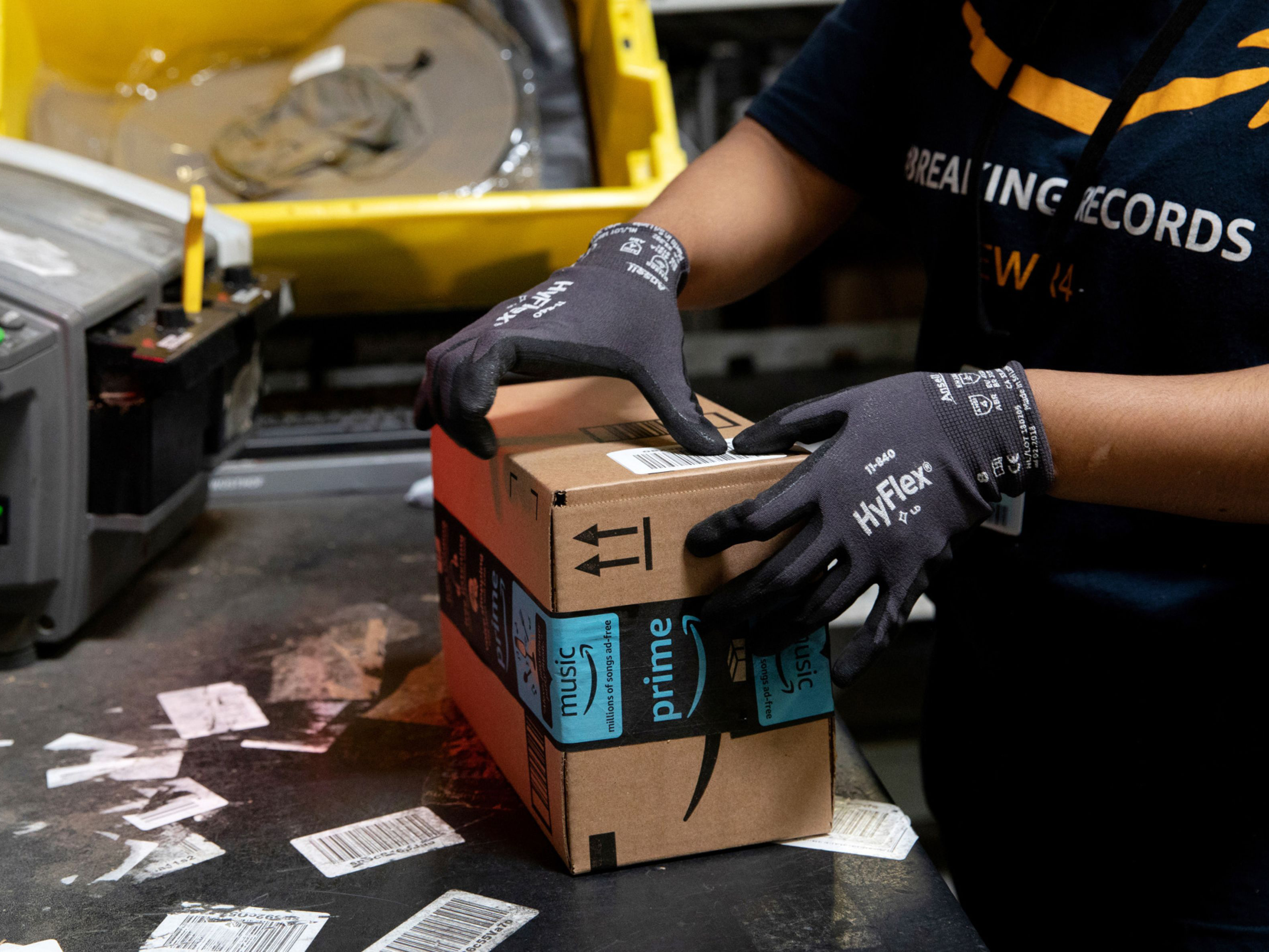
Visit Our Sponsors |
|
|
|
|
|
|
|
|
|
|
|
|
|
|
|
|
|
|
|
|
|
|
|
|
|
|
|
|
|
|
|
|
|
|
|
|
|
|

The spasm of worker activism that has roiled Amazon.com Inc. in recent months arrived at the company’s annual meeting on Wednesday, with two leaders of a failed union drive backing shareholder proposals encouraging Amazon to complete a diversity audit and consider workers for board seats.
Shareholders on Wednesday rejected all 11 outsider proposals, including calls to disclose the risks of Amazon’s surveillance technology and antitrust liabilities, pay and promotion rates among gender and racial groups and its plastic waste output. All of the company’s slate of director nominees were approved, General Counsel David Zapolsky said during the meeting.
Vote totals weren’t immediately available at the meeting, during which outgoing Chief Executive Officer Jeff Bezos announced that his successor would take overJuly 5 and pushed back against antitrust charges leveled at the company.
The e-commerce giant’s yearly gathering has become a hotbed of shareholder activism, with investors seeking to nudge the company on social responsibility, transparency and environmentalism, among other issues. In recent years, employees have also started speaking up. In 2019, staff at Amazon’s headquarters attended the in-person meeting in Seattle en masse, a show of support for a worker-authored resolution calling for more action by Amazon to prevent climate change.
Darryl Richardson and Jennifer Bates, who both work at Amazon’s Bessemer, Alabama, warehouse, spoke at Wednesday’s meeting, held virtually because of the pandemic.
Richardson backed a proposed audit of Amazon’s impact on racial equity, inside and outside the company. He said that if the company wanted to honor its commitments to racial diversity and equity, “Amazon would listen to its Black workers, not campaign against them.”
Bates spoke on behalf of a proposal to consider nominees from its hourly workforce for future board openings. The pandemic and the unprecedented union drive in Alabama shone an often negative spotlight on working conditions for the hundreds of thousands of workers who pack, ship and deliver Amazon’s goods. The Retail, Wholesale and Department Store Union, which sought to represent workers in the warehouse, is appealing its defeat, alleging illegal conduct by Amazon. The company denies the charges.
Bates said Amazon doesn’t listen to feedback from workers like her, saying that when she sought to raise concerns, “managers are unavailable, don’t listen, or simply dismiss me.”
“We want to make sure that the leadership understands its most important asset: the workers,” she said.
Alicia Boler Davis, who runs Amazon’s main warehouse network, stuck up for her employer’s workplace record, saying during the meeting that the company was “committed to doing the right thing by its employees.” She echoed aims Bezos laid out in his recent shareholder letter, to make Amazon the best place to work.
“While it may be easy for critics to paint in broad brush strokes an image of a cold-hearted employer and negative working conditions, the reality is very different,” said Boler Davis, a member of Bezos’s senior leadership team.
Investor advisory firm Institutional Shareholder Services Inc. had recommended shareholders vote for all but two of the outside proposals, including the worker representation resolution and proposed racial audit, over Amazon’s objections. Amazon, which has ramped up advertising and public-relations campaigns around its good works in recent years, devoted nearly 16,000 words in its proxy statement to rebuttals of the shareholder proposals.
Also voted down was a proposal for Amazon to appoint a corporate outsider as board chair in place of Bezos, a perennial shareholder proposal.
RELATED CONTENT
RELATED VIDEOS
Timely, incisive articles delivered directly to your inbox.

